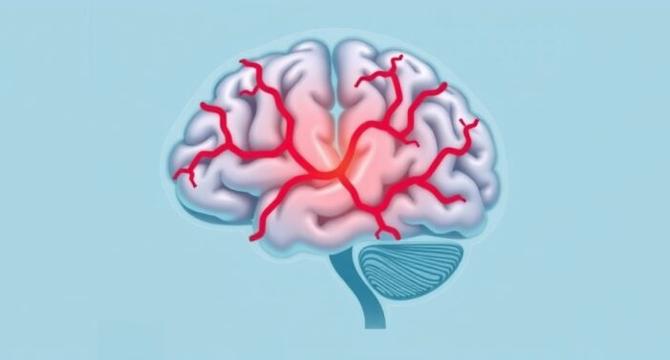Bioengineer
1w
64

Image Credit: Bioengineer
Circulatory Issues in the Brain’s Memory Hub Associated with Mild Cognitive Impairment in Seniors
- A study led by the University of Southern California has found that blood vessel issues in the brains of patients with mild cognitive impairment (MCI) could give insights into early signs of cognitive decline. The research ffound that variations in cerebral blood flow, particularly within the temporal lobes, could provide crucial insights into early signs of cognitive decline.
- The study examined 144 older adults who were living independently, employing a combination of neuropsychological assessments, blood sampling, and advanced brain imaging techniques to investigate the relationship between cognitive performance and cerebrovascular responses.
- Participants underwent a specialized MRI protocol consisting of breath-holding intervals designed to provoke the natural dilation of cerebral blood vessels. Analysis revealed that individuals with a compromised ability to dilate blood vessels in the temporal lobes exhibited demonstrable cognitive impairment, independent of amyloid plaque presence, which is often associated with Alzheimer’s disease.
- The research illuminates the importance of including cerebrovascular assessments in the routine diagnostic protocols for cognitive issues, broadening our understanding of memory disorders and their multifactorial nature.
- Existing medications that promote vascular function and, subsequently, cognitive health, such as antihypertensives, present exciting opportunities for future research to enhance blood flow in the brain.
- The study compels a reevaluation of current diagnostic criteria for memory disorders to include a nuanced understanding of cognitive health that incorporates vascular function.
- Moving beyond amyloid-centric models to a more comprehensive picture of cognitive health can revolutionize approaches to diagnosis and treatment, offering hope for more effective strategies in preventing dementia and enhancing the quality of life for aging individuals.
- The study serves as a clarion call for the necessity of integrating vascular health into the broader discussion about cognitive decline.
- As research continues to unfold, there lies the potential for innovative preventative measures and treatments that could dramatically influence the lives of those at risk of cognitive decline.
- Through dedicated research, the potential exists for innovative preventative measures and treatments that could massively influence the lives of those at risk of cognitive decline, offering a bright future for dementia prevention and treatment.
Read Full Article
3 Likes
For uninterrupted reading, download the app